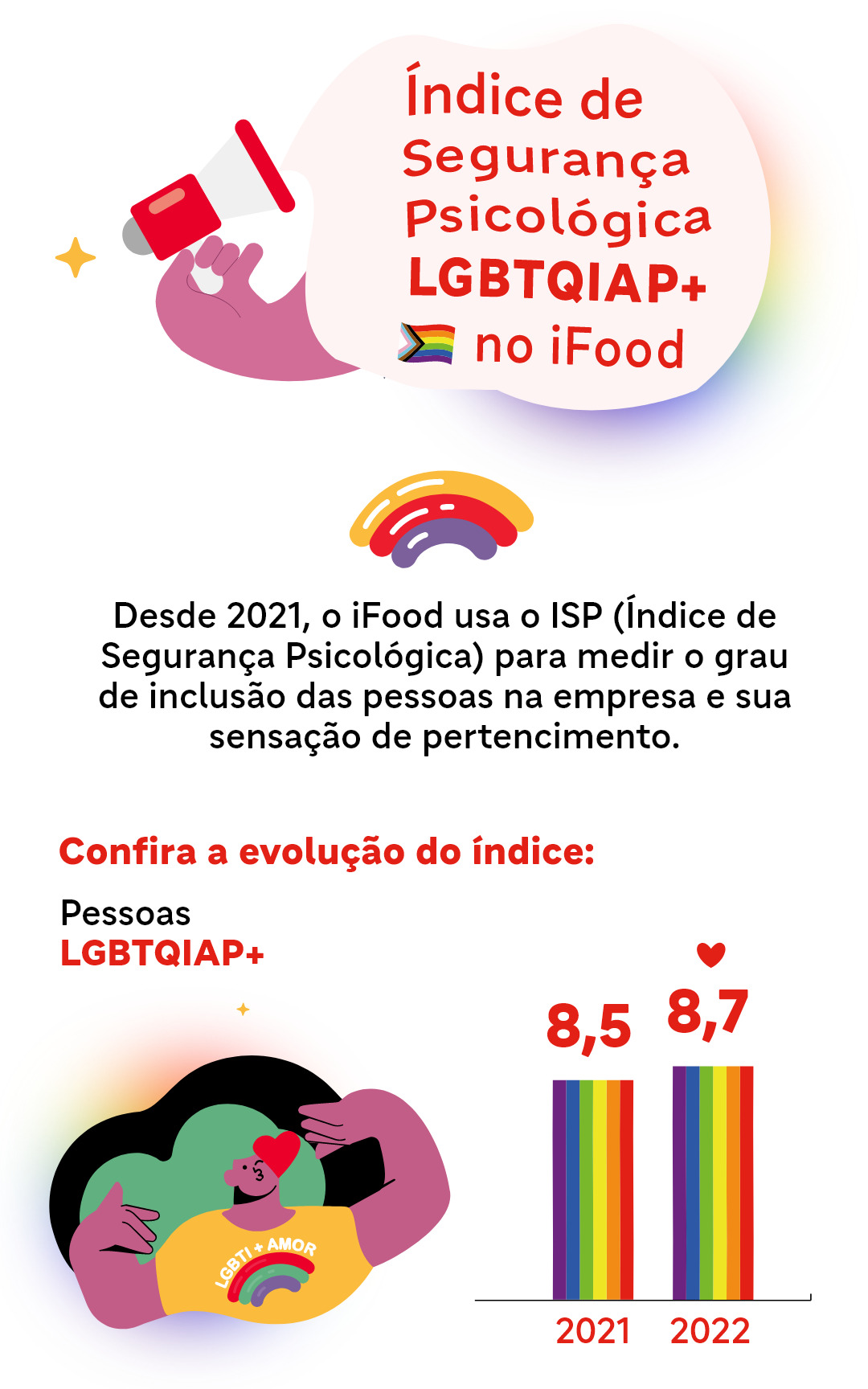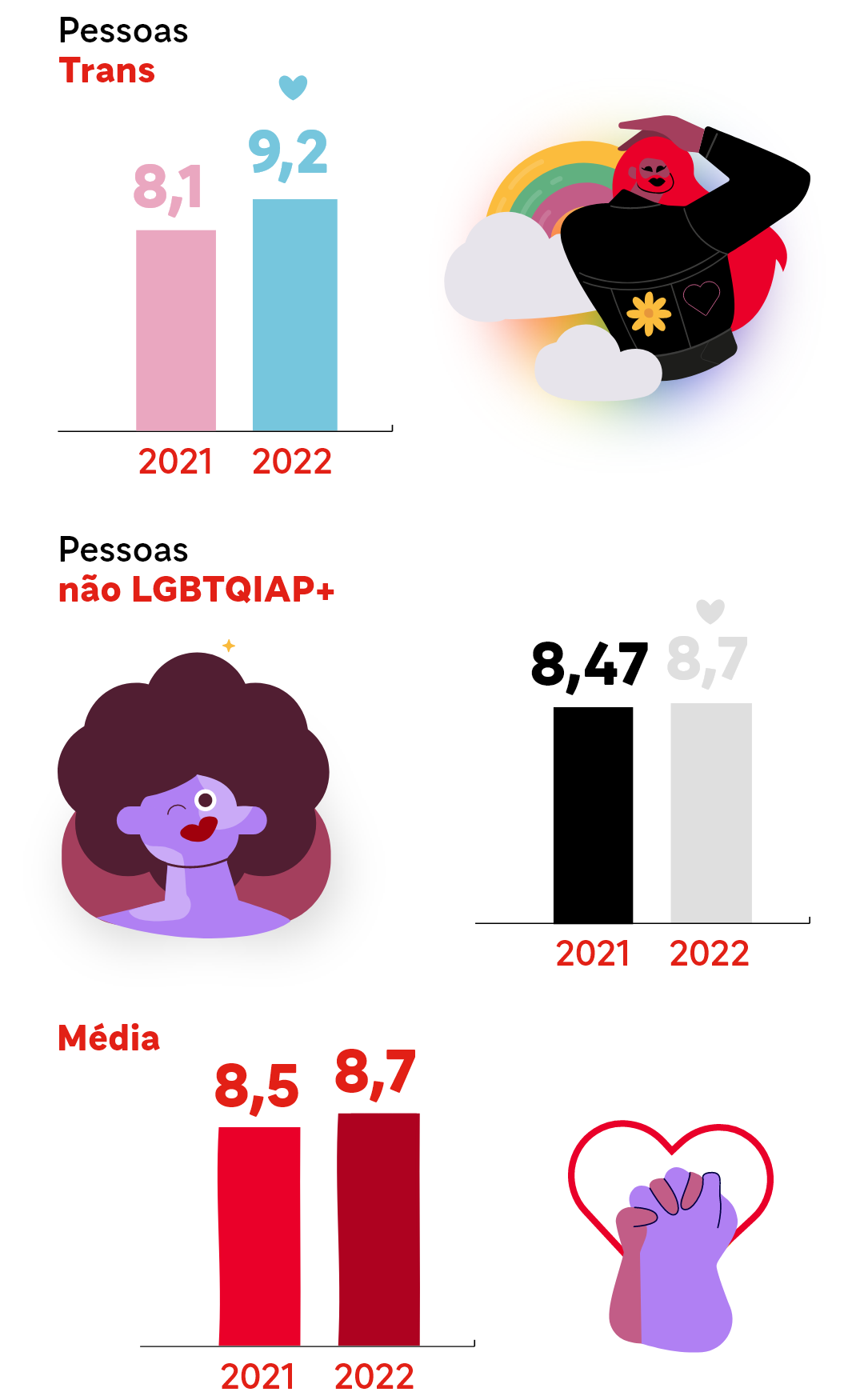In 2021, iFood developed an indicator to find out whether people who belong to minority groups (such as women and black people, LGBTQIAP+ or who have a disability) feel psychologically safe in their work environment.
This indicator is the ISP, or Psychological Safety Index, which assesses aspects such as a sense of belonging, freedom to express your identity, to disagree, to take risks and to learn.
Based on the methodology of Dr. Amy Edmonson, from Harvard University, it measures the degree of inclusion of people in the company and how psychologically safe they feel — that is, whether they think they will not suffer retaliation when expressing their identity and ideas.


Since 2021, the company has measured the ISP of all employees to compare minority groups with those that are part of the dominant culture and see if there is a difference in this feeling of security and belonging.
To do this, the company compares, for example, the ISP of LGBTQIAP+ people with those who are not LGBTQIAP+, and that of transgender people with that of cisgender people.
The Psychological Safety Index for LGBTQIAP+ people on iFood
In 2022, the ISP of LGBTQIAP+ people increased compared to 2021 — it went from 8.5 to 8.7 on a scale of 0 to 10 and was equal to the ISP of non-LGBTQIAP+ people. The index, in fact, was the same as the company's general average, which was also 8.7.
The index recorded by trans people was above this average: it was 9.2. This is a higher number than the ISP of cisgender men and women, who registered an ISP of, respectively, 8.8 and 8.6.
“Although the sample of trans people is significantly smaller than that of cisgender people in iFood, the progress is relevant”, comments Bel Glezer, Diversity and Inclusion coordinator at iFood.
“We know that the path to diversity and inclusion is long and that we still have a long way to go, but from 2021 to now, we have practically eliminated the discrepancies in this index between minority groups when we look at the total iFood population”, he adds.


